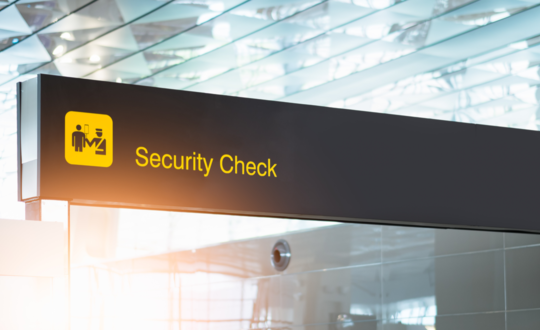U.S. Customs Opens Mass Searches of Data on Confiscated Traveler Smartphones, Computers
Aug 27 2020
I am an advocate of providing law enforcement officers the newest technology to do their jobs well.
If there is a recording of an event, the police should be able to use it.
If a stingray can capture cell phone conversation, with appropriate procedural limitation, an officer should be able to listen and record.
Even when I recently expressed concern about the use of facial recognition software on crowds of political protesters, I do not seek a ban on its use like some U.S. lawmakers. I favor a requirement that a warrant be obtained before such a powerful technology be used for law enforcement purposes, to protect the clear First Amendment rights of protesters while allowing police to identify troublemakers when necessary. See my final argument on the matter here.
But I am concerned about reports that the U.S. Customs and Border Protection Agency is now building a searchable database of all of the data taken off of devices seized from travelers over the years. This takes a set of actions that many classify as unconstitutional overreach – the Custom officers’ confiscation of devices from travelers at U.S. borders – and multiplies it into a deep invasion of people’s privacy. The information gleaned from this database clearly being the fruit of a poisonous tree.
Deep as we are into the age of analytics, we know that holding information is one thing, but being able to search and analyze across millions of files of disparate information is another thing. Patterns emerge. Logic arises. Meaningless facts become items of interest.
This can be a good thing for law enforcement, so building a database of the information taken in successful criminal cases seems like a good idea. But the further your database gets from information on convicted criminals and the closer it gets to the private data of regular people that was never used in a serious investigation, the further you drift from searches that are constitutional under the Fourth Amendment.
And this proposed database goes far afield. According to Vice, the information will be from the tens of thousands of cell phones, laptops, iPads, and other devices taken from travelers at or near the U.S. borders – taken often without charging the device holder with a specific crime. U.S. Customs expects this searchable surveillance database will be maintained for up to 75 years. Vice writes that Customs “has been collecting this kind of data for a long time, but the process has been decentralized, creating a natural limit on who could access the information and how easily they could do it. The new system, developed by PenLink, a Nebraska-based surveillance and analytics company, will change that. It will create “a risk that irrelevant information extracted from devices will now be accessible to a larger number of (US Border Patrol) agents with no nexus to that particular case,” according to CBP’s privacy assessment.”
Prior to 2018, there was virtually no limit on the power of U.S. Customs to seize anyone’s devices at the border and/or copy all the information from your iPad, smartphone, or even work computer onto government systems. The ACLU sued and won, forcing Customs to demonstrate a reasonable suspicion that a crime was being committed. The government has appealed this ruling and pre-ruling information will be included in the searchable database.
Think about what is in these seized devices – your entire location history, all of your correspondence and social media posts, your web surfing history, all photos/videos, your banking information – all of which will be dropped into this searchable database for government review. Will those searches be available to the general public via Freedom of Information Act requests? I’m not sure, but either way, a huge load of private data is now available to review, likely without any limitation at all.
So, while I am in favor of law enforcement using all reasonable tools available to them under law, I am not sure how searching this database qualifies as a reasonable tool and why its use is not limited under law. The latest example of government overreach that shows we should learn to push back against law enforcement sometimes.
There should be some balance at the border between safety and privacy.